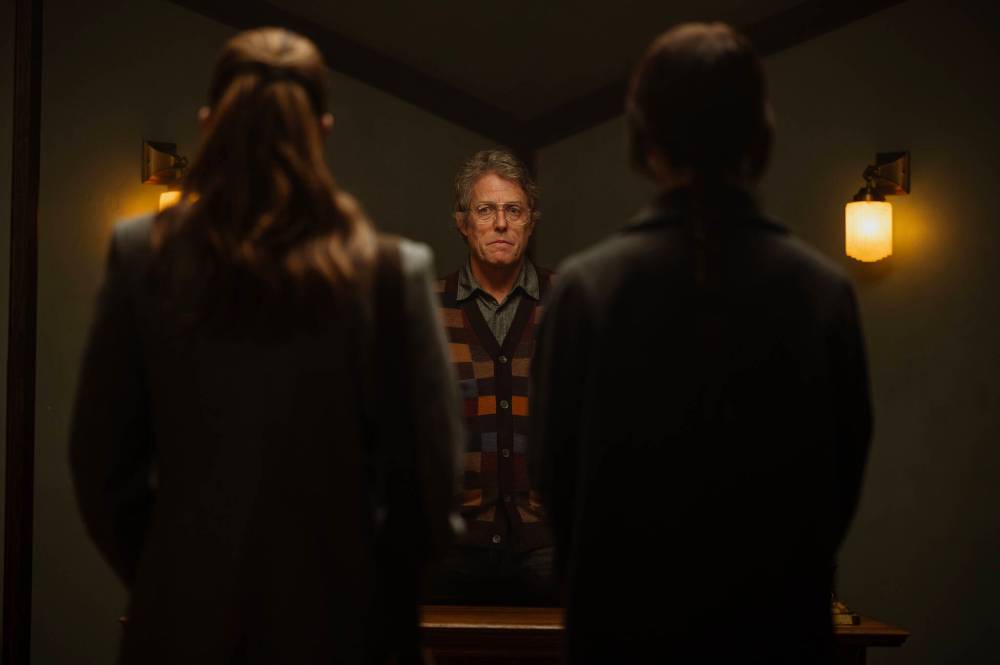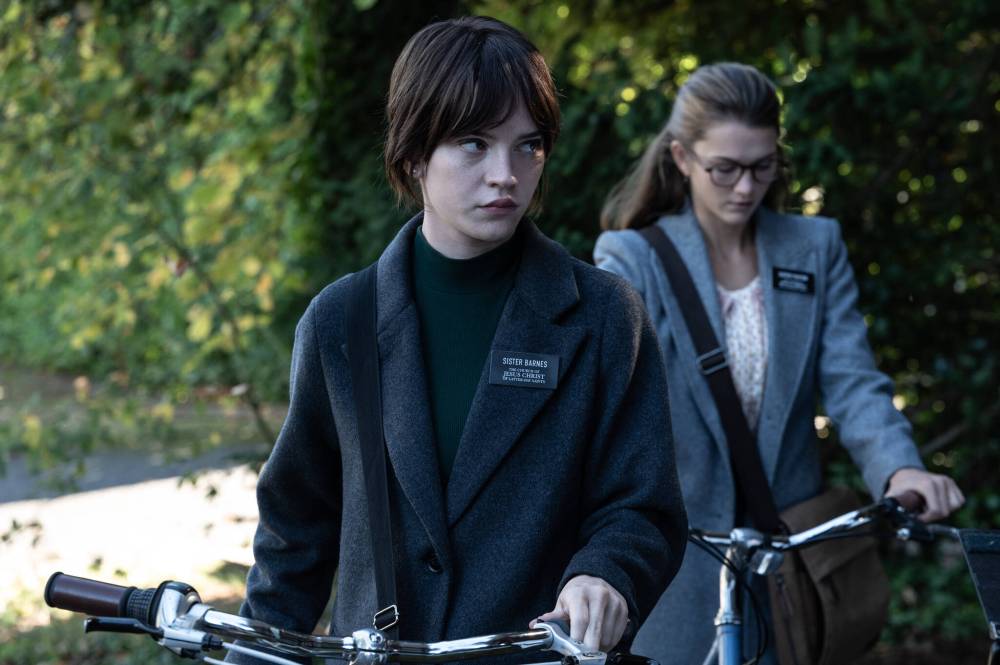Heretic: A chamber horror story that slowly ratchets up the tension
Advertisement
Read this article for free:
or
Already have an account? Log in here »
To continue reading, please subscribe:
Monthly Digital Subscription
$1 per week for 24 weeks*
- Enjoy unlimited reading on winnipegfreepress.com
- Read the E-Edition, our digital replica newspaper
- Access News Break, our award-winning app
- Play interactive puzzles
*Billed as $4.00 plus GST every four weeks. After 24 weeks, price increases to the regular rate of $19.00 plus GST every four weeks. Offer available to new and qualified returning subscribers only. Cancel any time.
Monthly Digital Subscription
$4.75/week*
- Enjoy unlimited reading on winnipegfreepress.com
- Read the E-Edition, our digital replica newspaper
- Access News Break, our award-winning app
- Play interactive puzzles
*Billed as $19 plus GST every four weeks. Cancel any time.
To continue reading, please subscribe:
Add Free Press access to your Brandon Sun subscription for only an additional
$1 for the first 4 weeks*
*Your next subscription payment will increase by $1.00 and you will be charged $16.99 plus GST for four weeks. After four weeks, your payment will increase to $23.99 plus GST every four weeks.
Read unlimited articles for free today:
or
Already have an account? Log in here »
Hey there, time traveller!
This article was published 09/11/2024 (348 days ago), so information in it may no longer be current.
Unsettling, unexpected and very, very talky, the latest horror flick from edgy, arty studio A24 is a deranged chamber piece.
Basically an extended theological conversation taking place within the confines of one small home, the film is grounded in its three central performances, with star Hugh Grant’s gleefully terrifying turn matched by strong work from newcomers Chloe East (The Fabelmans) and Sophie Thatcher (Yellowjackets).
Sister Paxton (East) and Sister Barnes (Thatcher) are two young women doing mission work for the Church of the Latter-day Saints somewhere in the Pacific Northwest. Sister Paxton is an earnest, eager true believer, distressed by the excesses of secular culture, especially “that South Park musical.” Sister Barnes, as signalled by her opinion that some of the musical’s numbers are actually kind of funny — and also by her red, bee-stung, French New Wave lips — might harbour some secret conflicts.
The pair knocks on the door of Mr. Reed (Grant), a man who claims he wants to know more about their faith. When the girls tell him there must be another woman present in order for them to enter the house, he assures them his wife is in the kitchen, making pie.
A pie will show up later, under horrific circumstances. In the meantime, Mr. Reed is intent on playing a long, slow psychological game with the young women. His persona slowly shifts from potential convert to comparative-religion know-it-all to a man intent on chipping away at the women’s beliefs by pointing out sticky theological points, such as Mormonism’s previous endorsement of polygamy. (“It’s sketch, for sure,” concedes Sister Paxton.)
Mr. Reed initially comes off as a bit awkward, a little eccentric and pedantic, but there are glints of something creepy and controlling just beneath the surface.
Likewise, the surroundings — a drab, dim, beige front room with a “Bless This Mess” cross-stitch sampler hanging on the wall — gradually take on a sinister cast. There are lights and locks on timers, mysterious noises in the back of the house, and Mr. Reed’s seemingly offhand remark about “metal in the walls and ceilings.”
By the time he’s speaking darkly of the primal roots of “the one true religion,” we know the women are in a terrifying trap. Mr. Reed says he will allow them to leave, but first they will have to pass through a test of their faith.
Grant made his career playing a series of stammering, self-deprecating, hair-flopping charmers in ’90s rom-coms. He has recently switched over to portraying some memorable baddies, including the villain in Paddington 2 (though nobody is truly villainous in the Paddington universe).

Here he goes full-on evil, in a subtle, ironical and insinuating way. Playing with his one-time light-comic image, Grant turns geniality into something monstrous and threatening. (Just watch him sing along to Radiohead’s Creep or impersonate Jar Jar Binks.)
Filmmaking duo Scott Beck and Bryan Woods (A Quiet Place, The Boogeyman), who collaborate here as scripters and directors, can wring deep dread — and a certain amount of absurdist comedy — from very small details. Their minimalist, meticulously constructed scenario allows the audience to focus on the actors and their words.
Like the recent Speak No Evil, Heretic is played partly as an uncomfortable social situation gone terribly, terribly wrong. Horror fans who like splatter should know going in that the film is just talking for the first hour — lots and lots of talking — as Mr. Reed covers Spider-Man and Voltaire, Taco Bell and Burger King, Krishna and Mithra.
Heretic wants to make serious points about the origins and structures of belief, including non-belief. One of the film’s more interesting suggestions is that militant atheism can end up having a lot in common with the fundamentalism it criticizes (proselytizing, oversimplification and a fanatical dedication to the cause).
This stance allows Beck and Woods to keep the intellectual and emotional tensions tight. While the film does take some swipes at organized religion, it is clearly morally on the side of the devout young women. Tough-minded and tenacious, Sister Barnes and Sister Paxton are never reduced to sacrificial lambs, even under extreme conditions.
After the effectiveness of the film’s setup, which combines sly, slow-rolling satire with real emotional heft, it’s frustrating that Heretic falters in the final third.

The narrative descends — literally — into what could be called the Bad Basement horror sub-genre, seen in recent movies such as Don’t Breathe and Barbarian. The creeping unease of the characters’ conversation is replaced by nasty and improbable physical action.
Still, Heretic’s final image will linger, its ambiguous meaning asking viewers to test their own faith.
alison.gillmor@freepress.mb.ca

Studying at the University of Winnipeg and later Toronto’s York University, Alison Gillmor planned to become an art historian. She ended up catching the journalism bug when she started as visual arts reviewer at the Winnipeg Free Press in 1992.
Our newsroom depends on a growing audience of readers to power our journalism. If you are not a paid reader, please consider becoming a subscriber.
Our newsroom depends on its audience of readers to power our journalism. Thank you for your support.

